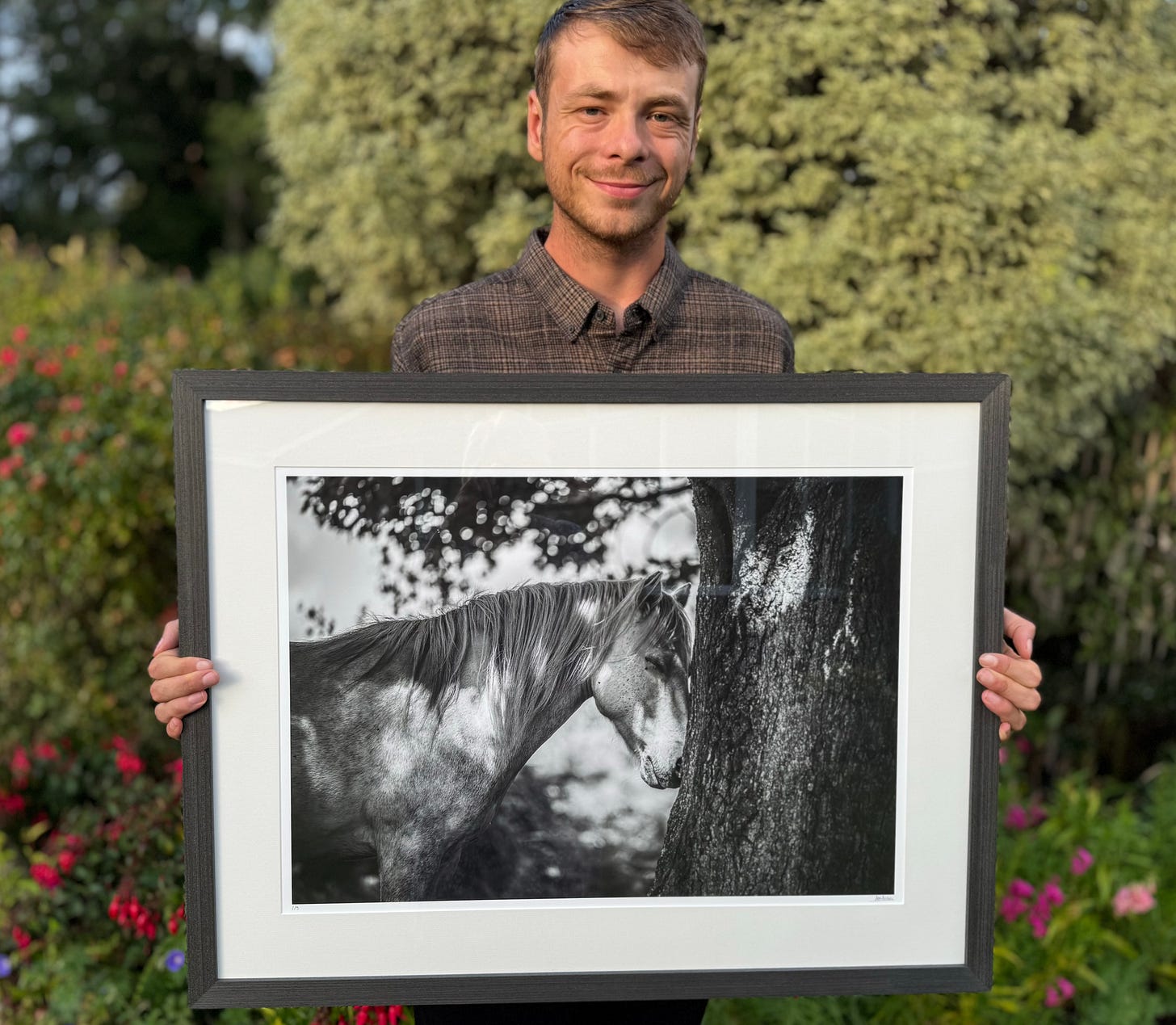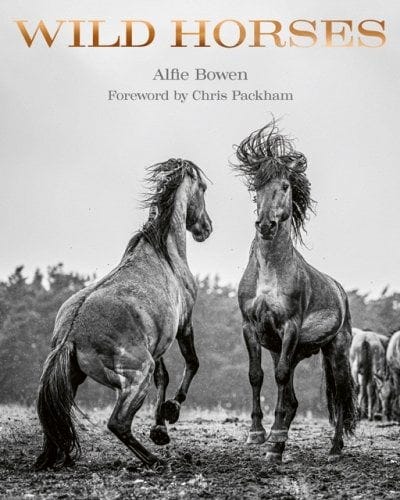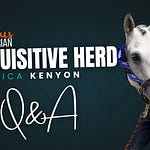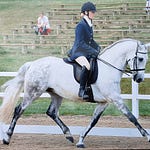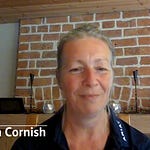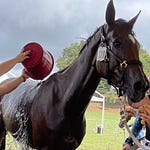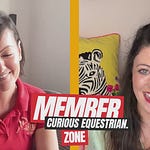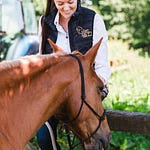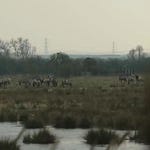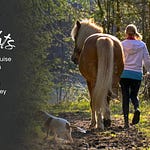When 10-year-old Alfie Bowen refused to return to school after years of bullying, his mother fought to get him just one day a week with horses. That single day would change everything.
Deep Dive
Guest: Alfie Bowen, Wildlife Photographer & Author of "Wild Horses"
Key Topics:
How equine therapy transformed a struggling autistic child into an acclaimed photographer
The patient art of photographing semi-feral ponies across Britain's wildest landscapes
Why animals make the best teachers about kindness and acceptance
The intersection of autism, creativity, and finding your voice through art
The Big Takeaway
In a world that often feels designed for neurotypical minds, Alfie Bowen found his sanctuary not in changing himself, but in finding spaces where he could simply exist as he was. His journey from a child eating lunch alone in a school room to a photographer whose work graces National Geographic pages isn't just about artistic success, it's about the profound healing that happens when we're accepted exactly as we are.
Alfie's photography process itself mirrors this acceptance. He sketches his vision, then waits, sometimes for years, for the perfect moment. No forcing, no rushing. Just patience, respect, and trust that the shot will come when it's meant to. It's a lesson many of us could apply far beyond photography.
Three Things That Stood Out
1. "Being around these horses that I knew couldn't laugh at me or bully me. I just felt free and accepted for the first time in years."
This hits at something profound about why horses work as therapy animals. They don't judge, don't mock, don't exclude. They respond to energy and intention, not social hierarchies or communication styles. For someone who'd spent years being told they were "weird" for not talking, the non-verbal communication with horses must have felt like coming home.
2. "My brain never stops. Sometimes I'm up at two in the morning and I'll get this image idea of two horses popping into my head."
Alfie's creative process challenges the stereotype that autism limits imagination. Instead, his neurodivergent mind becomes a creative superpower; generating vivid, detailed visions that drive him to spend hours, even years, pursuing the perfect shot. His sketching process before shoots shows how he harnesses what others might see as "obsessive" thinking into artistic vision.
3. "A lot of people could learn a lot of lessons from watching a herd of horses. How kind they were to each other, how protective they were of each other."
After years of human cruelty, Alfie found his moral compass in watching wild horses. Their natural kindness, protection of vulnerable herd members, and unconditional acceptance became the template for how he believes humans should treat each other. His book's core message—"just be kind"—emerges from genuine observation of animal behaviour.
Deep Dive Analysis
The Healing Power of Witnessed Patience
Traditional education and social systems often demand immediate responses, quick adaptation, conformity to preset timelines. But horses, and nature generally, operate on entirely different rhythms.
When Alfie describes sitting still for six hours waiting for a cheetah to move, or camping on the edge of New Forest land to watch 50 horses emerge at dawn, he's not just describing photography techniques. He's describing a form of meditation, a practice of being present without agenda beyond bearing witness.
This patience wasn't taught in classrooms or therapy sessions; it emerged from necessity. To photograph wild animals authentically, you must enter their world on their terms. You can't force a stallion to rear on command or make foals play for the camera. You simply show up, consistently, respectfully, and wait.
The Art of Seeing Without Being Seen
Alfie talks about keeping distance, ensuring the horses behave naturally, not wanting them to be nervous of his presence. He's learned to photograph while remaining essentially absent from the frame; both literally and energetically.
This mirrors his experience at school, where his difference made him hypervisible in the worst ways. But in the wild, that same difference becomes an asset. His ability to remain still, focused, and patient for extended periods, traits that made him seem "weird" in social settings, become exactly what's needed to capture authentic animal behaviour.
When Obsession Becomes Expertise
Alfie mentions that obsessions are "another big trait of autism," describing his childhood fixation with animals. In medical or educational contexts, these intense interests are often seen as limitations to be managed or redirected. But Alfie's story demonstrates how obsession, given the right outlet, transforms into mastery.
His encyclopedic knowledge of animal behaviour, his ability to predict weather patterns for shoots, his willingness to research beach access routes and camping locations, all of this springs from that early "obsession" with animals. What others might call excessive focus becomes the foundation for professional expertise and artistic vision.
Practical Applications
For Equestrian Educators and Therapists:
Alfie's experience suggests the importance of creating judgment-free spaces where students can simply exist alongside horses without performance pressure. His favourite moments were the one-to-one time, leading, bathing, brushing, rather than formal riding instruction. Sometimes the most profound learning happens in the quiet moments between human and horse.
For Parents and Caregivers:
When Alfie's mother fought the legal system to get him into a special needs school and pushed for the equine therapy placement, she was advocating not for him to change, but for environments where he could flourish as he was. The lesson isn't about finding ways to make autistic children "normal"; it's about finding spaces where their particular gifts can emerge.
For Anyone Seeking Creative Fulfillment:
Alfie's practice of sketching visions before shoots offers a powerful model for creative work. Rather than hoping inspiration strikes in the moment, he creates specific goals and then pursues them with methodical patience. His willingness to wait years for certain shots, to return again and again to the same locations, demonstrates how persistence and specificity can lead to extraordinary results.
Questions for Reflection
How might our impatience with natural rhythms, prevent us from accessing deeper creativity and connection?
Alfie's story suggests that some of our greatest gifts emerge not from speed or efficiency, but from willingness to move at the pace authentic to us. In a world obsessed with quick results and instant gratification, his years-long pursuit of single photographs offers a different model entirely.
Where in your own equestrian journey might you need to "keep your distance" to allow more authentic connection?
Alfie's insight about letting horses behave naturally by maintaining appropriate space challenges our assumptions about closeness equalling connection. Sometimes the deepest relationships emerge from respect for boundaries rather than attempts at forced intimacy.
Join the Conversation
What resonated most with you from Alfie's story? Have you experienced the healing power of simply being accepted by animals exactly as you are? Share your thoughts in the comments below, I read every single one and often feature reader insights in future episodes.
[For free subscribers seeing this Thursday]: Want early access to these deep dives plus exclusive member Q&As with our guests? Join as a paid subscriber for just £4.99/month and never miss the extended conversations that happen after the recording stops.
Share this episode: Forward this to anyone who might need reminding that different doesn't mean less than—sometimes it means exactly what the world needs.
Find Alfie's work: AlfieBowen.com | Instagram @AlfieBowen | "Wild Horses" available at all major bookstores



